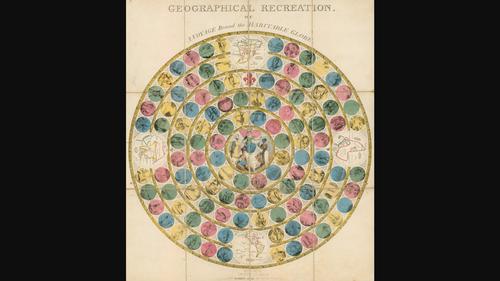当前位置:
X-MOL 学术
›
WIREs Clim. Chang.
›
论文详情
Our official English website, www.x-mol.net, welcomes your feedback! (Note: you will need to create a separate account there.)
Histories of habitability from the oikoumene to the Anthropocene
WIREs Climate Change ( IF 9.2 ) Pub Date : 2023-05-10 , DOI: 10.1002/wcc.840 Lachlan Fleetwood 1
WIREs Climate Change ( IF 9.2 ) Pub Date : 2023-05-10 , DOI: 10.1002/wcc.840 Lachlan Fleetwood 1
Affiliation

|
The IPCC's Sixth Assessment Report warns in stark terms that many long inhabited parts of the world are now on course to become uninhabitable. As astronomers continue to search the universe for new habitable planets, it is equally essential to historicize the consequences of changing habitability on this one. This article reviews how scholars have engaged with the widely noted but rarely theorized categories of “habitability” and “uninhabitability.” While tracing longer imperial genealogies, the primary focus is on notions of habitability in relation to European global empires in the nineteenth and twentieth centuries, and their postcolonial legacies. The article traces three key themes in the literature: that habitability was inherently limited, and beyond those limits allegedly lay uninhabitability; that habitability was differential and that certain places were habitable for some groups but not others (but that this might be changed by technological interventions); and finally, that the limits of habitability were not static, but could change for both better and worse. Here the links between colonialism and ideas of acclimatization, terraforming, “improvement,” deliberate uninhabitability, and an “Anthropocene” have all been central to the literature. These have often been closely associated with insidious forms of environmental determinism, which are taking on new forms in an age of crisis (especially in narratives around climate and migration). By drawing together previously disparate literatures, this article ultimately calls on scholars to embrace habitability studies more widely, and to expand on their interdisciplinary potential for communicating the societal consequences of a changing climate.
中文翻译:

从奥库曼时期到人类世的宜居性历史
IPCC 的第六次评估报告严厉警告说,世界上许多长期有人居住的地区现在正变得不适合居住。随着天文学家继续在宇宙中寻找新的宜居行星,将宜居性变化对这颗行星造成的后果历史化也同样重要。本文回顾了学者们如何研究广泛关注但很少理论化的“宜居性”和“不宜居性”类别。在追溯较长的帝国谱系时,主要关注的是与 19 世纪和 20 世纪欧洲全球帝国及其后殖民遗产相关的宜居性概念。这篇文章追溯了文献中的三个关键主题:宜居性本质上是有限的,据称,超出这些限制就无法居住;宜居性是有差别的,某些地方适合某些群体居住,但不适用于其他群体(但这可能会通过技术干预而改变);最后,宜居性的极限并不是一成不变的,而是可能会变好或变坏。在这里,殖民主义与适应环境、土地改造、“改进”、故意不适宜居住和“人类世”等思想之间的联系都是文献的核心。这些往往与阴险的环境决定论密切相关,环境决定论在危机时代呈现出新的形式(特别是在有关气候和移民的叙述中)。通过汇集以前不同的文献,本文最终呼吁学者们更广泛地接受宜居性研究,
更新日期:2023-05-10
中文翻译:

从奥库曼时期到人类世的宜居性历史
IPCC 的第六次评估报告严厉警告说,世界上许多长期有人居住的地区现在正变得不适合居住。随着天文学家继续在宇宙中寻找新的宜居行星,将宜居性变化对这颗行星造成的后果历史化也同样重要。本文回顾了学者们如何研究广泛关注但很少理论化的“宜居性”和“不宜居性”类别。在追溯较长的帝国谱系时,主要关注的是与 19 世纪和 20 世纪欧洲全球帝国及其后殖民遗产相关的宜居性概念。这篇文章追溯了文献中的三个关键主题:宜居性本质上是有限的,据称,超出这些限制就无法居住;宜居性是有差别的,某些地方适合某些群体居住,但不适用于其他群体(但这可能会通过技术干预而改变);最后,宜居性的极限并不是一成不变的,而是可能会变好或变坏。在这里,殖民主义与适应环境、土地改造、“改进”、故意不适宜居住和“人类世”等思想之间的联系都是文献的核心。这些往往与阴险的环境决定论密切相关,环境决定论在危机时代呈现出新的形式(特别是在有关气候和移民的叙述中)。通过汇集以前不同的文献,本文最终呼吁学者们更广泛地接受宜居性研究,



























 京公网安备 11010802027423号
京公网安备 11010802027423号